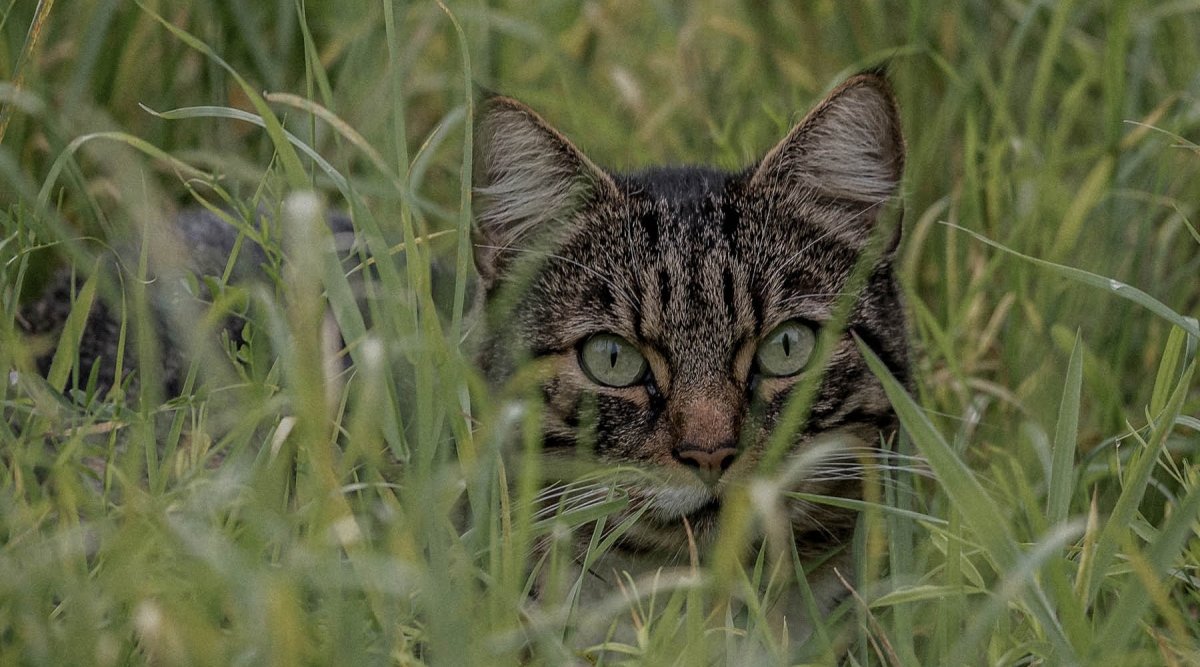Many dogs like to drink from puddles or other standing water, which is usually harmless, but it can also lead to infection with Giardia. Dogs like to drink puddle water - yours too? Find out whether every infection results in giardiasis, a diarrheal disease caused by parasites, in our interview with veterinarian Philipp Schledorn.
AniForte®: Let's start with the initial question: Is it safe for dogs to drink puddle water?
Vet: So-called Giardia, lat. Giardia intestinalis, can be found in puddle water. These are small intestine parasites that can cause diarrhea in dogs. Giardia is transmitted to dogs through contaminated water, food or by smear infection via already infected animals. However, it should be noted that ingestion of the parasites does not necessarily lead to illness. It is estimated that 15-20% of all dogs are infected with Giardia and excrete it. Nevertheless, acute giardiasis does not occur in dogs. There are no symptoms that an infection is present.
AniForte®: How can I tell if my dog has giardiasis?
Vet: Recurrent chronic diarrhea that is mucousy yellowish or thin to watery and foul-smelling is conspicuous. Bloody diarrhea is also common in cases of Giardia infestation. Dogs repeatedly have diarrhea during an acute illness, and this is usually accompanied by vomiting, weight loss, loss of appetite and apathy. As a dog owner, you can observe how your own pet loses a lot of weight and are naturally worried.
AniForte®: Can any dog get giardiasis?
Vet: Basically yes, but giardiasis is typically a disease of puppies or young dogs. This is because their immune system is not yet as strong as in older dogs. As mentioned, Giardia can also occur in the dog's body without the disease breaking out thanks to the immune system. Giardiasis is also relatively common in animals that are kept in larger groups (breeding, animal shelters).

AniForte®: What causes giardiasis?
Vet: Giardia are protozoa that occur as parasites in the intestines of dogs. There are strains with varying degrees of pathogenicity. Genotypes C and D are primarily found in dogs. Humans can also become infected with strains A2 and B. However, according to current knowledge, the parasite strains usually remain within their species limits; zoonoses, i.e. infections caused by transmission from animals to humans, are rare. In this case, exceptions prove the rule. A risk of infection from dog to human is therefore possible, but unlikely.
Instead, dogs become infected via the reproductive stages of the parasite (cysts), which are ingested with contaminated water, e.g. puddles, or food. Licking up infected dog excrement or transmission via the paws into the dog's digestive tract are also causes. Very few cysts are enough to cause infection. The state of the immune system determines the further course of the disease.
AniForte®: How is Giardia diagnosed?
Veterinarian: Giardia antigen or Giardia DNA is detected in a fecal sample taken by a veterinarian. Microscopic detection is considered uncertain. It is important to bring a collective sample of three fecal samples from 3-5 days for examination, as the pathogen is not excreted continuously. Only these pooled samples guarantee a reliable result.
AniForte®: As a pet owner, how can I recognize giardiasis in dogs? What are the symptoms?
Vet: If your dog has diarrhea but you are not sure whether it could be giardiasis, I recommend the following checklist:
- How old is my dog? Does he fall into the risk group of young animals?
- Where does my dog come from? Did it come from a shelter or a kennel?
- Does my dog spend a lot of time with other dogs (e.g. in a dog school)?
- When did my dog last have diarrhea?
- What did my dog's diarrhea look like?
- Has my dog had diarrhea before?
- Has my dog vomited?
- When was my dog last wormed?
- How is my dog's general condition?
- Do you have the impression that my dog has abdominal pain? Can he be stroked on the stomach?
- Does my dog eat with appetite?
- Do other animals live in the household? Which ones?
- Does my dog have any pre-existing conditions?
- Is my dog currently on medication? Is he generally weakened?
If the suspicion of giardiasis hardens or the diarrhea persists, you should consult a veterinarian or a veterinary practitioner.
AniForte®: How is giardia treated?
Vet: Treatment is carried out over several days with antiparasitic medication, usually tablets or a paste. If several animals are kept in a household, all animals should be tested for Giardia. Even if no symptoms have yet appeared. In this way, pet owners can ensure that all animals to which Giardia has already been transmitted are treated immediately.
AniForte®: As a dog owner, how can I help my pet to recover?
Vet: In addition to treating Giardia with medication, special hygiene measures must be observed in the event of illness. The treatment of the environment (washable surfaces with a steam jet, wash blankets hot, clean bowls and toys daily with boiling water, dry everything well) contributes to the recovery of the dog, as the cysts are removed in this way. For the same reason, the dog's coat should be washed out with shampoo. In long-haired dogs, the hair in the anal area should be clipped short if necessary. In addition, accompanying measures are possible as with any diarrhea: a change of food to an easily digestible gastrointestinal diet and a sufficient supply of fluids and electrolytes. The normalization of the gastrointestinal tract can also be supported by feed supplements, e.g. elm bark.
After the symptoms have subsided, it is important to check the success of the therapy by taking another poo sample, as asymptomatic carriers of Giardia must continue to be treated.
AniForte®: What is the prognosis for diarrhea caused by Giardia?
Vet: The good news for all dog owners is that the prognosis is generally favorable. However, treatment is sometimes difficult. Some dogs respond poorly to the medication. It is estimated that there is an 80 percent chance of success with each attempt. Reinfection should be prevented by consistent environmental treatment.
AniForte®: Can giardiasis also be fatal?
Vet: There are always isolated cases. But deaths only occur in animals that have already been severely weakened by other diseases or circumstances. A second factor that can exacerbate the course of giardiasis is a lack of medical care. If, as a Central European dog owner, you make sure that your dog's immune system is intact and consult a vet or veterinary practitioner if symptoms occur, you and your pet are definitely not at risk.
AniForte®: How can I prevent Giardia as a dog owner?
Vet: To prevent relapses or a rapid spread, hygiene is also the top priority in prevention. As there is currently only one vaccine, GiardiaVax, which is not licensed in Germany and whose side effects are controversial, there is unfortunately no way of protecting your dog from the disease in this way. Regular worming and a strong immune system are the be-all and end-all.
AniForte®: Finally, would you recommend dog owners to prevent their dogs from drinking from puddles?
Vet: Infection with Giardia is possible anywhere. Since you can't forbid your dog from interacting with other dogs and you can't monitor him on every walk, this kind of caution is exaggerated in my opinion. The outbreak of giardiasis depends much more on the dog's immune system. However, you should be aware of any diarrhea and consult a veterinarian or veterinary practitioner if necessary.
AniForte®: Dr. Schledorn, thank you very much for the informative interview.
Veterinarian: Thank you for the invitation and I wish all dogs and their owners continued good immune defense!
By the way: Cats can also be infected with Giardia genotypes A1 and F. Here too, transmission to dogs or humans is possible but unlikely. If cats and dogs live in the same household, the following still applies: All animals must be examined in the event of a disease occurring in order to avoid infection.



